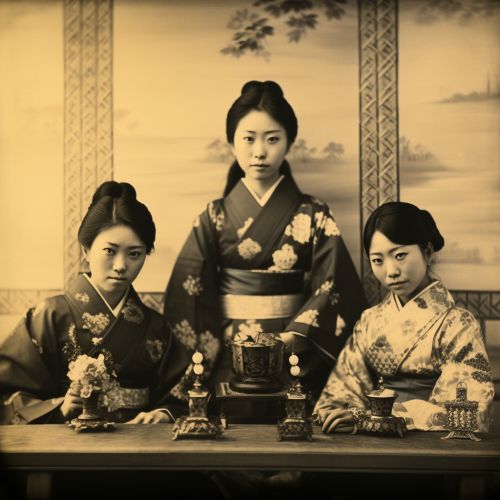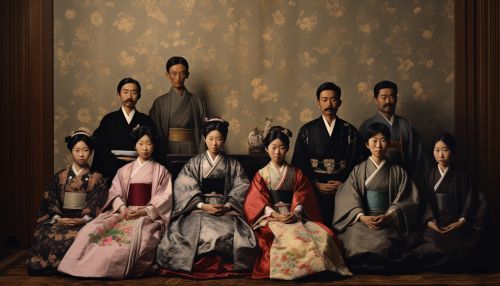Meiji Japan
Meiji Restoration
The Meiji Restoration was a significant event in Japanese history that marked the end of the Edo period and the beginning of the Meiji era. This political revolution, which took place in 1868, restored practical imperial rule to Japan under Emperor Meiji. The restoration led to enormous changes in Japan's political and social structure and spanned both the late Edo period and the beginning of the Meiji period.
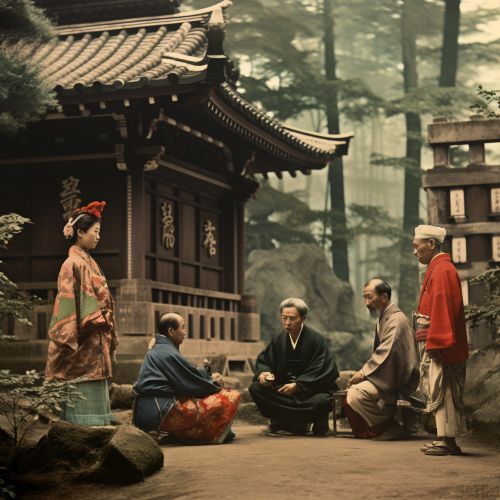
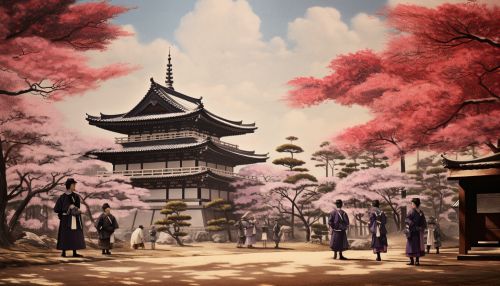
Political Changes
The Meiji Restoration was characterized by a series of political changes that led to the establishment of a centralized, constitutional government. The Tokugawa shogunate, which had ruled Japan for over 250 years, was abolished, and power was returned to the emperor. The new government was structured after the Western model, with a cabinet system and a bicameral parliament known as the Imperial Diet.
Social and Economic Reforms
The Meiji government implemented a series of social and economic reforms aimed at modernizing Japan and making it competitive with Western powers. These included the abolishment of the feudal system, the introduction of compulsory education, and the establishment of a modern industrial economy. The Land Tax Reform of 1873 was a significant economic reform that replaced traditional forms of taxation with a uniform land tax.
Western Influence and Modernization
The Meiji period was marked by significant Western influence and rapid modernization. The government sent students and officials abroad to learn from Western countries and hired foreign experts to teach in Japan. Western technology, ideas, and customs were adopted and adapted to suit Japanese needs and conditions. This process of Westernization was a key aspect of the Meiji government's strategy to strengthen Japan and protect its independence.
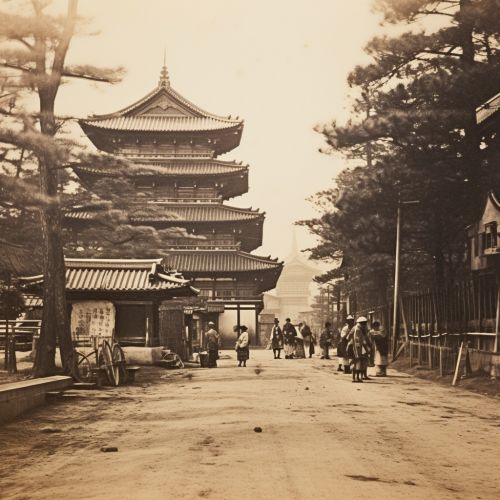
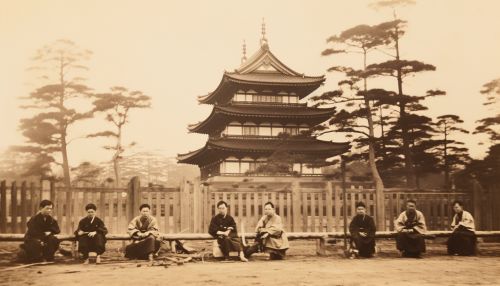
Military and Foreign Policy
The Meiji government also carried out military reforms and adopted an aggressive foreign policy. The Conscription Law of 1873 established compulsory military service, and the military was modernized along Western lines. Japan's foreign policy during the Meiji period was characterized by expansionism, leading to the First Sino-Japanese War and the Russo-Japanese War.
Legacy of the Meiji Period
The Meiji period had a profound impact on Japan and laid the foundation for its emergence as a major world power in the 20th century. The reforms and modernization efforts of the Meiji government transformed Japan's social, political, and economic structures and set the stage for its industrialization and militarization in the decades that followed.
